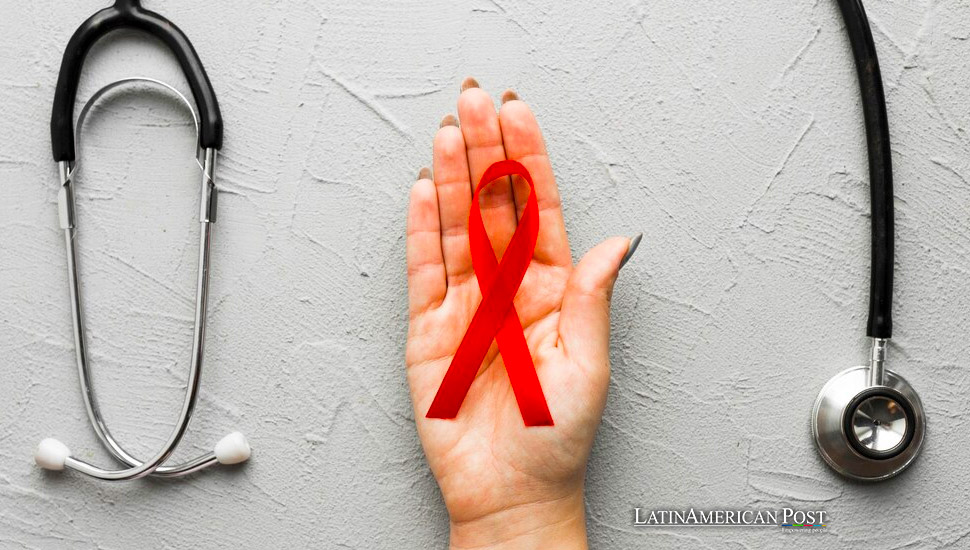A Nation in Crisis: Urging Action on Mexico’s HIV Epidemic

Civil organizations in Mexico are urging President-elect Claudia Sheinbaum to take immediate action on the country’s escalating HIV epidemic. With 17,858 new cases in 2022 and a worrying rise in infections, advocates warn of severe human and financial costs without a comprehensive national response.
In an urgent plea to Mexico’s President-elect Claudia Sheinbaum, a coalition of civil organizations has called for decisive action to address the escalating HIV crisis in the country. Mexico saw a record 17,858 new HIV cases in 2022, the highest in its history, sparking alarm among public health advocates and signaling a dire need for a comprehensive national strategy.
Over the past five years, the country has experienced a troubling increase in HIV infections, a stark contrast to the downward trends observed in previous decades. The rise in cases has occurred predominantly under the administration of outgoing President Andrés Manuel López Obrador, raising questions about the effectiveness of current public health policies.
Héctor Martín Méndez, a Colectivo de Derechos Humanos representative in Tapachula, expressed deep concern. “This is worrisome. And remember that these figures might be approximate, not total, but should be alarming,” Méndez told EFE. His statement reflects a growing anxiety among health professionals and activists who argue that if general healthcare in Mexico is “deficient” for all diseases, the outlook for specialized care like that required for HIV/AIDS is even grimmer.
Méndez emphasized that while HIV/AIDS is a preventable infection, its severity demands that it be treated as a critical public health issue. “We should be lowering the infection rates. Given that HIV/AIDS is preventable, the gravity of the situation requires timely and complete attention from the public health system to ensure these numbers decrease,” he added.
A Call for Proven Models and Expanded Access
In response to the crisis, Rossemberg López Samayoa, president of the organization Una Mano Amiga en la Lucha contra el Sida, is urging Sheinbaum to consider care models that have been successful elsewhere in Latin America. Specifically, he highlighted the need to replicate the model of Mexico City’s Clínica Condesa, a leading facility in HIV care and prevention.
“Clínica Condesa is an effective and efficient model at the forefront of human rights, care, and prevention,” López Samayoa told EFE. The clinic offers free treatment to people living with HIV and provides preventive sexual health services, a model that López Samayoa believes should be expanded to other states across Mexico. He noted that Sheinbaum, having served as the head of government in Mexico City from 2018 to 2023, should recognize the clinic’s success and consider integrating its structure into the national health framework.
The activists argue that the fragmentation of Mexico’s healthcare system exacerbates the crisis. The lack of coordination between various health institutions often forces patients to migrate within the country for consistent care. This disjointed system leads to interruptions in treatment, further endangering the lives of those living with HIV.
A Battle Against Stigma and Fragmentation
The HIV/AIDS epidemic has been a significant public health challenge in Mexico for decades. The first cases of HIV in the country were reported in the early 1980s, a period marked by widespread fear and misinformation about the disease. Stigma and discrimination against those living with HIV were rampant, complicating efforts to provide adequate care and prevention.
In the 1990s, Mexico began to make strides in combating the epidemic by establishing specialized clinics and introducing antiretroviral therapy (ART). The country’s healthcare policies at the time focused on reducing the stigma associated with HIV and increasing access to treatment. Despite these efforts, the epidemic persisted, driven by factors such as poverty, limited healthcare access in rural areas, and social stigma.
In recent years, the situation has worsened due to the fragmentation of the healthcare system. The introduction of the INSABI (Instituto de Salud para el Bienestar) in 2020, intended to provide universal healthcare, has been criticized for its lack of coordination and inefficiency. Many patients have reported difficulties in accessing continuous treatment, a critical issue for those living with HIV who require lifelong medication.
The historical backdrop of Mexico’s battle against HIV/AIDS underscores the need for a cohesive national strategy. The current rise in infections serves as a stark reminder that the fight against HIV is far from over and that new approaches are urgently needed to prevent a resurgence of the epidemic.
Recommendations for Claudia Sheinbaum
As Claudia Sheinbaum prepares to assume office, civil organizations are urging her to prioritize the HIV epidemic as a national emergency. They recommend that she expand proven care models like Clínica Condesa to other states and strengthen healthcare coordination to prevent interruptions in treatment. Moreover, they stress the importance of public awareness and education campaigns to reduce stigma and promote prevention, alongside investments in research and innovation to develop better prevention and treatment methods.
The rising number of HIV cases in Mexico represents a defining challenge for President-elect Claudia Sheinbaum. The civil organizations’ call to action highlights the urgent need for a national strategy that addresses the epidemic’s root causes and provides comprehensive care to those affected.
Also read: México Approves Home HIV Tests, Expanding Access and Early Treatment Opportunities
As Mexico stands at a crossroads, the decisions made in the coming years will have profound implications for the country’s future. By taking bold and decisive action, Sheinbaum has the opportunity to turn the tide on the HIV epidemic and ensure that Mexico emerges as a leader in the global fight against HIV/AIDS. However, failure to act could result in a deepening public health crisis, with devastating consequences for future generations. The nation watches as Sheinbaum prepares to take the reins, hoping that her leadership will bring about the change needed to stem the tide of this growing epidemic.


